Cataract Surgery Cost in India
Unlock Exclusive Discount : Your Gateway to Premium Healthcare with Medsurge India Health Value Card.

Unlock Exclusive Discount : Your Gateway to Premium Healthcare with Medsurge India Health Value Card.


As individuals age, the natural lens of the eye can become cloudy and opaque, resulting in a condition known as cataract. If left untreated, cataracts can lead to significant vision impairment or even blindness, making them the primary cause of blindness globally. Fortunately, cataract eye surgery offers an effective solution to this issue.
Cataract Surgery Cost in India are significantly lower than in other countries, including the United States, the United Kingdom, Germany, and others, and the quality of healthcare is also much better. The greatest facilities are accessible with reasonable healthcare packages, premium medical tools, and the assurance of first-rate medical professionals for people traveling for Cataract Surgery in India.
Cataract Surgery Cost in India can vary from around Rs 15,000 to Rs 1,27,000 ($600 to $1500) depending on the type of surgery, the hospital, and the lens used:
Other factors that can affect cataract surgery cost in India, include the age of the patient, their previous eye procedure history, and the severity of their cataracts.
| Countries | Prices |
| India | $600 to $1500 |
| United State | $3500 to $7000 |
| United Kingdom | $4000 to $8000 |
| Australia | $450 $3000 |
| Russia | $500 to $900 |
Cataract surgery cost in India can vary based on several factors, including:
A cataract is an eye ailment where the lens of the eye gets hazy and damaged, causing blurred vision. One or both eyes may be impacted. In an effort to restore vision clarity, cataract surgery involves removing the eye’s clouded natural lens and replacing it with an artificial intraocular lens. It is one of the most popular and effective operations performed worldwide. More than 98% of attempts are successful. Since this operation is outpatient, patients are free to leave the hospital after surgery.
If cataracts in one or both eyes are causing vision problems that hinder your daily activities, surgical intervention may be required. Additionally, if your optometrist needs to assess the back of your eye to address any specific eye conditions, they may recommend cataract surgery as well.
It’s crucial to understand that vision loss caused by these other illnesses cannot be treated by cataract surgery. It only helps with cataract-related visual loss.
As you age, your risk of developing cataracts increases, and they often worsen over time.
Early lens alterations don’t significantly impede vision and don’t call for surgery. Usually, when cataracts start visibly impairing your eyesight, a specialist will advise surgery. A symptom that you could require cataract surgery is difficulty performing routine tasks like driving, reading, or seeing in bright light.
Following are some specific ways cataracts might affect your vision:
Congenital cataracts are those that are present from birth. One of the main factors contributing to childhood blindness is congenital cataracts. However, if surgery is done before a child is 6 weeks old, they typically have a satisfactory outcome.
There are two main techniques for performing cataract surgery:
This is the more frequently utilized method, where the surgeon makes a small incision in the cornea. A specialized instrument known as a probe is introduced through this incision. The probe uses ultrasound waves to break the cataract lens into smaller pieces, which are then extracted. Once the damaged lens is removed, an artificial lens is implanted in its place.
This technique involves making a larger incision in the cornea to allow for the removal of the entire cloudy lens core in one piece. The remaining lens material is then suctioned out. Extracapsular surgery is often selected when financial factors significantly influence the surgical choice.
Patient background & clinical evaluation are performed on the lookout for signs, symptoms, and some other related risk factors. Eye tests performed are:
In order to be prepared for your cataract surgery, you’ll probably need to take a few actions. You’ll receive detailed instructions from your eye specialist.
Your eye surgeon will remove the clouded lens from your eye during surgery and replace it with an intraocular lens, or IOL. The procedure takes about an hour and is essentially painless.
You will often be awake throughout cataract surgery. Although you won’t be able to see what your doctor is doing, you could notice lights or movement. Your eye doctor may prescribe medication to keep you quiet and relaxed throughout the procedure. Following this procedure, your eye surgeon will:
After cataract surgery, your eye doctor will explain how to preserve your eye. You’ll be given eye drops to aid in the healing of your eye, and you might need to wear glasses or a special eye shield. Additionally, you might need to refrain from certain actions for a few weeks, such as touching your eye, stooping, or lifting heavy objects.
You might notice that your eye is a little scratchy, uneasy, and sensitive to light and touch. Your eye should feel better in a day or two.
If you experience any of these issues following surgery, please contact your eye doctor straight away:
Cataract surgery is quite secure, but complications may occur with any surgical procedure, complications are usually rare and can be treated, and these include:
Helpful – Diabetic Retinopathy Treatment Cost in India
The country has some of the best medical care facilities and services in Asia, making medical tourism in India very popular. The best Hospitals for Cataract Surgery in India provide all types of disease-related surgeries using advanced technology. Also, the price for Cataract Surgery in India is much more affordable as compared to other states or nations around the world. An international patient can expect to pay 50-60% less for Cataract Surgery in India.
The best hospitals that perform Cataract Surgery in India provide comprehensive appropriate treatment, including comprehensive pre-operative evaluations, minimally invasive surgical options, and post-operative rehabilitation programs. Patients can expect personalized treatment, individualized attention, and compassionate care at these medical facilities. Top international organizations such as the National Accreditation Board for Hospitals and Healthcare Providers (NABH) and the Joint Commission International (JCI) accredit the hospitals.
Medsurge India serves as a distinguished support network for patients seeking medical professionals, healthcare institutions, and specialized therapies. Our team is dedicated to providing you with a curated list of accredited, reputable, and reliable doctors and medical facilities tailored to your specific health requirements. Additionally, we develop a treatment plan that aligns with your financial considerations and assist patients in securing travel authorizations, medical visas, and various other essential services.
| Estimate Type | Estimated Cost (USD) |
|---|---|
| Total Package Estimate | USD 600 – USD 1,500* |
*Final cost depends on hospital, patient condition, and additional procedures/devices if required. Share your reports to get an accurate quote.
Estimated cost range in India: USD 600 – USD 1,500*
*For an accurate quote and hospital options, share your reports and preferred city/hospital.
A: Cataract Surgery is largely advocated when a cataract disturbs someone from doing the day to day activities like driving or reading.
A: The process is generally performed on an outpatient basis and doesn’t require an overnight stay in a hospital.
A: Although no means of preventing cataracts has been scientifically proven, can take protection against the risk of developing cataract:
A: Cataract surgery generally takes approximately 30 minutes to execute.
A: Originally, more powerful glasses and vivid reading lights might help.
A: The effect of cataract surgery is direct long-lasting clear eyesight.
A: Smaller incisions during surgery promote faster healing and reduce the risk of cataract surgery complications.
A: The individual may resume daily activities within 2-3 days following the surgery.
A: Cataract surgery is among the safest and most prosperous surgeries done.
A: In subsequent instances, meet a physician:
A: Cataract surgery ought to be achieved when the visual reduction from the cataract significantly influences the actions of everyday living.
A: The lens has to be clear for your retina to be given a sharp picture.
A: cataract isn’t poisonous and cannot spread from 1 eye to another or from person to person.
A: No, with a disease in the eye doesn’t cause pain, redness, or stuffy.
A: Most sophisticated glaucoma which is white in color.
As time passes, it clouds longer place of the lens, making vision clarity hard.
A: Ophthalmologists who’ve specialized in treating eye disorders. They diagnose cataracts and remove cataracts when suggested.
A: Modern cataract operation entails leaving some of the lens capsules inside the eye to encourage the intraocular lens. The capsule may become cloudy in the following time, requiring the opening of the capsule via using a laser.
A: Cataract Surgery is quite commonly done and is effective in restoring vision in the vast majority of patients.

Ophthalmologist
Senior Consultant & Head of Department
30+ years
Care Hospital, Banjara Hills, Hyderabad
View Doctor

Ophthalmologist
Senior Consultant
21+ years of experience
Manipal Hospital, Panaji, North Goa
View DoctorOphthalmologist
Senior Consultant
13+ years of experience
Manipal Hospital, Mandi Mohalla, Mysore
View DoctorOphthalmologist
32+ years of experience
Manipal Hospital, Mandi Mohalla, Mysore
View Doctor
Ophthalmologist
34+ years of experience
KMC Hospital, Hampankatta, Mangaluru
View Doctor
Ophthalmologist
Senior Consultant
42+ years of experience
KMC Hospital, Hampankatta, Mangaluru
View Doctor
Ophthalmologist
Senior Consultant
46+ years of experience
KMC Hospital, Hampankatta, Mangaluru
View Doctor
Ophthalmologist
Senior Consultant
19+ years of experience
KMC Hospital, Hampankatta, Mangaluru
View Doctor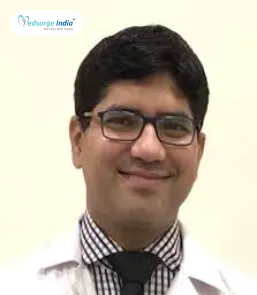
Ophthalmologist
Consultant
9+ years of experience
Insure Eye Institute, Ahmedabad
View Doctor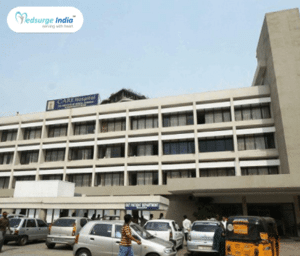

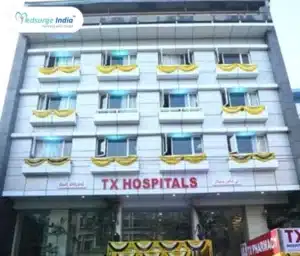
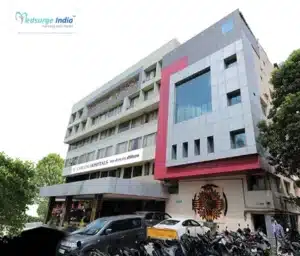



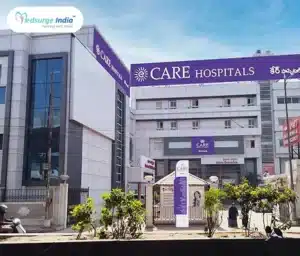


By using our site, you agree to our Terms and Conditions, Privacy Policy and Refund Policy. Medsurge India provides reliable healthcare information and treatment options to support informed decision-making. Our content is designed to support and complement the guidance of your treating doctor, helping you feel informed and confident throughout your healthcare journey. We also Accept International Payments.

Copyright © 2025 NSM ONLINE SOLUTIONS PRIVATE LIMITED. All rights reserved.